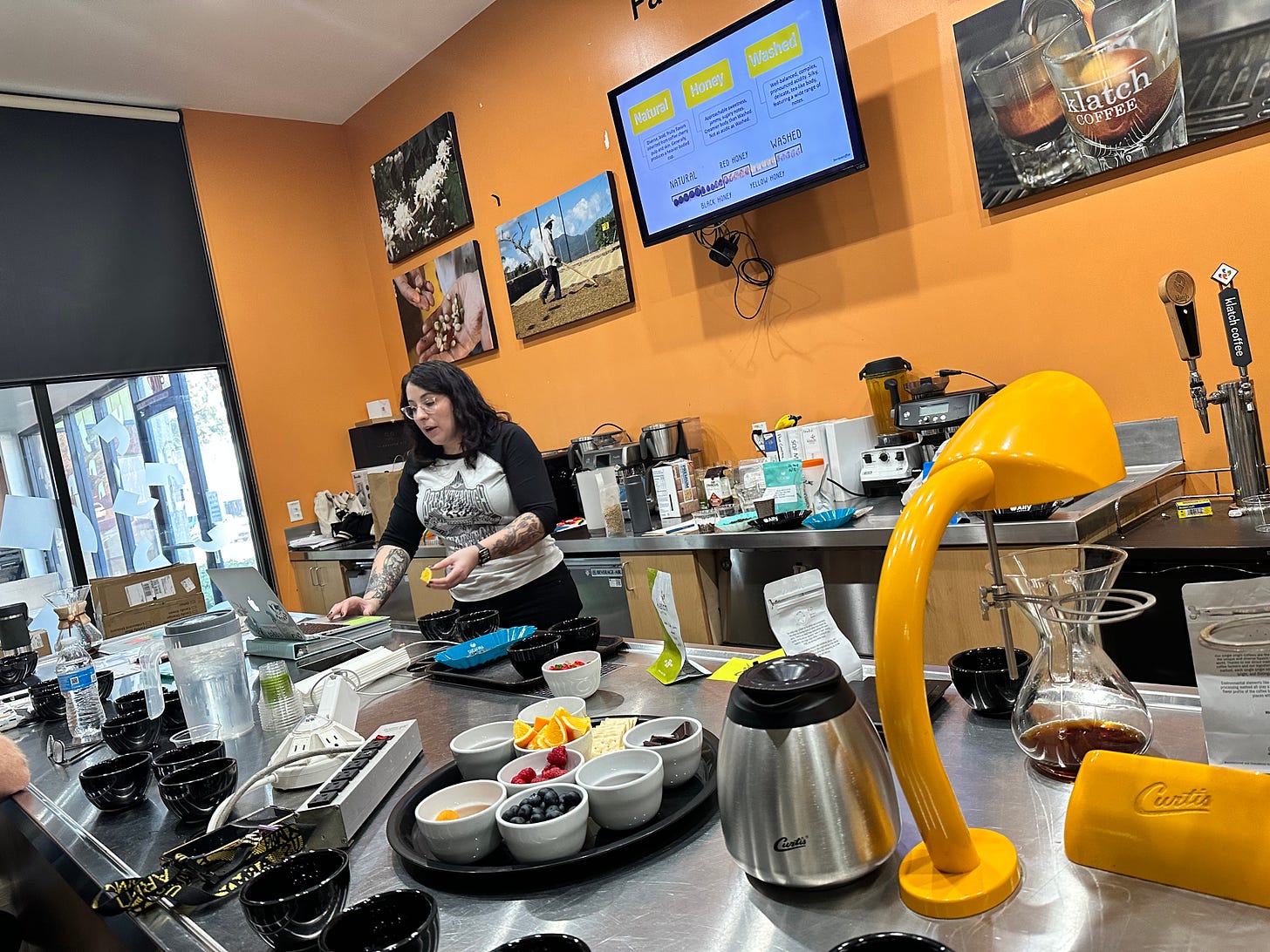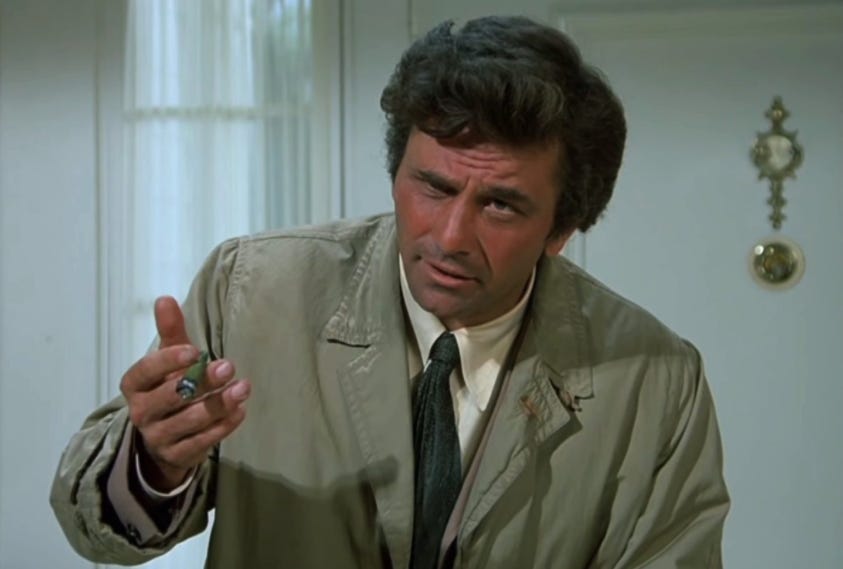Last Saturday I spent four hours at a Specialty Coffee Association training at Klatch Coffee in Rancho Cucamonga. Klatch is an elite roaster and frequent winner of specialty coffee awards. From roasting to cupping to brewing, they’re bona fide experts and I was delighted a few years ago when I found out they were in my backyard in the Inland Empire, a region of Southern California not known for being in touch with “the finer things,” if you will.
Being in the Klatch warehouse reminded me of my childhood, so much of which took place in a small industrial space on the corner of 3rd Street and Grand Avenue in Corona. I remember tagging along to the business with my dad on occasional Saturdays. Other than during holiday seasons, there was no production on weekends, but my dad would still go in sometimes to quietly work on the books, get a sense for production volumes for the week, or just sit and read a tattered copy of the Bhagavad Gita he kept in his desk. He still reads the same copy every morning, now as a retiree, his aged pages of dharma held together by a binder clip.
I would wander around the mostly dark warehouse, illumined in yellowy spots by brittle skylights that leaked at the seams on rainy days. I’d inspect the place as intently as Columbo — Now these vegetable roasters. Were they here last night? Now, I’m just a cop. What do I know about vegetable roasters? I was just asking if they were here is all. You have a good one, Mr. Danzinger.
The roasters were just large barbecues from Home Depot jerry built with smoke spouts, different patterned steel grates, and gauges picked up from the hardware store. They were lined against the side wall of the boiler room, which was the nerve center of the entire operation and where my dad retreated to smoke his Winston’s throughout the day.
Years later when my dad suddenly contracted pneumonia and was diagnosed with a touch of COPD, his foreman Jorge was astonished that he smoked at all. “I had no idea,” he exclaimed. He wasn’t the only one. My father’s primary care physician didn’t know either, a fact my sister promptly hurled to call into question all of his medical training. He was kind of a sheister — one of those fake doctors who studied medicine at some 1950s roadside college in India and somehow flew under the radar of the AMA. A classic doctor uncle, he prescribed Amoxycillin for literally everything and I’m convinced antibiotics resistance started with him.
But my father was a strategic smoker. He hid his habit in elusive tasks in dimly lit places, like examining trees in the very back of the garden by the fence, or checking if the burners were all working in the boiler, which lived in a room with a single bulb hanging from the rafters. These to-do’s his excuse to light up, to carve out a moment of solitude from the din of family business life. I can easily imagine my father being a bachelor poet. On evenings he had his glass of wine and read under the trees out back. It was in his nature, his bent, to be alone and I seem to have inherited that from him. I may convulse the first few days of losing you, but I slip into alone like night slips into dark.
That boiler was magnificent, adorned with valves! gauges! spouts! pistons! They measured the ferocity of burners, the heat of the water. The powerful beast was constructed out of steel and iron two inches thick on all sides. There was a viewing hole covered by a thin steel panel hooked on by a screw that moved from side to side. On the other side a thousand perfectly formed flames rose and moved in a trance, gesturing water into steam and warming my small face on the other side.
This water powered a line of steam-jacketed kettles my father picked up at the liquidation sale of some food company in Orange in the early 80s. That’s how he acquired all of the equipment he and my mom started the business with, including the boiler. He would go to auctions or just simply loiter around as stuff was hauled around, the weight of task turning to exasperation, obsolescence, generosity. That’s how the Great Big Boiler ended up in my childhood garage — through someone’s overwhelm knocking open another’s opportunity.
These stories of mystical boons seem so impossible today, but they seem to have built a lot of businesses. My parents fashioned a small empire for themselves off of that boiler and those kettles, making soups and sauces for local grocers and other companies. As those businesses grew, so did we. There are a lot of folks out there who want to experience this, but the price of luck has gone up.
All of this was not what I thought about as a little girl popping her head into every corner of the warehouse, poking or pouring Comet on the roach in the drain. Though it must be what I quietly imbibed. Thanks Klatch, for the trip.






